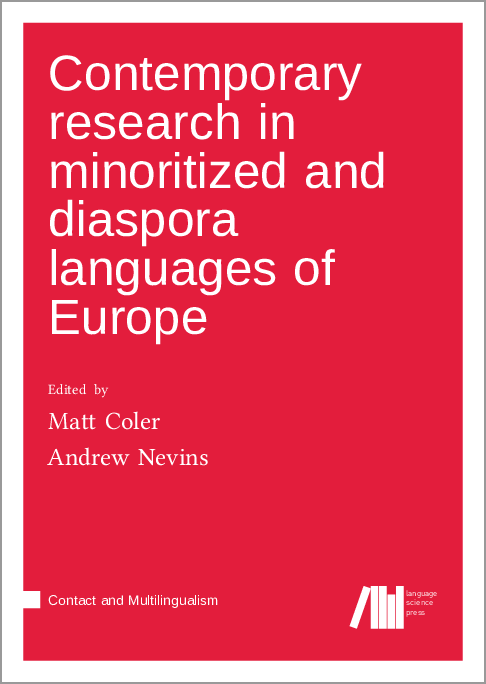We log anonymous usage statistics. Please read the privacy information for details.
Contemporary research in minoritized and diaspora languages of Europe
Synopsis
This volume provides a collection of research reports on multilingualism and language contact ranging from Romance, to Germanic, Greco and Slavic languages in situations of contact and diaspora. Most of the contributions are empirically-oriented studies presenting first-hand data based on original fieldwork, and a few focus directly on the methodological issues in such research. Owing to the multifaceted nature of contact and diaspora phenomena (e.g. the intrinsic transnational essence of contact and diaspora, and the associated interplay between majority and minoritized languages and multilingual practices in different contact settings, contact-induced language change, and issues relating to convergence) the disciplinary scope is broad, and includes ethnography, qualitative and quantitative sociolinguistics, formal linguistics, descriptive linguistics, contact linguistics, historical linguistics, and language acquisition. Case studies are drawn from Italo-Romance varieties in the Americas, Spanish-Nahuatl contact, Castellano Andino, Greko/Griko in Southern Italy, Yiddish in Anglophone communities, Frisian in the Netherlands, Wymysiöryś in Poland, Sorbian in Germany, and Pomeranian and Zeelandic Flemish in Brazil.
Chapters
-
Introduction
-
Documenting Italo-Romance minority languages in the AmericasProblems and tentative solutions
-
Spanish-Nahuatl bilingualism in Indigenous communities in MexicoVariation in language proficiency and use
-
Trilingual modalityTowards an analysis of mood and modality in Aymara, Quechua and Castellano Andino as a joint systematic concept
-
What is the role of the addressee in speakers' production?Examples from the Griko- and Greko-speaking communities
-
Innovations in the Contemporary Hasidic Yiddish pronominal system
-
Validity of crowd-sourced minority language dataObserving variation patterns in the Stimmen recordings
-
Complexity of endangered minority languagesThe sound system of Wymysiöryś
-
Language variation and language ideologies as intra- and extralinguistic constructive elements of the Wymysiöryś ethnolinguistic identity
-
Evaluating linguistic variation in light of sparse data in the case of Sorbian
-
Modeling accommodation and dialect convergence formallyLoss of the infinitival prefix tau ‘to’ in Brazilian Pomeranian
-
Using data of Zeelandic Flemish in Espírito Santo, Brazil for historical reconstruction




